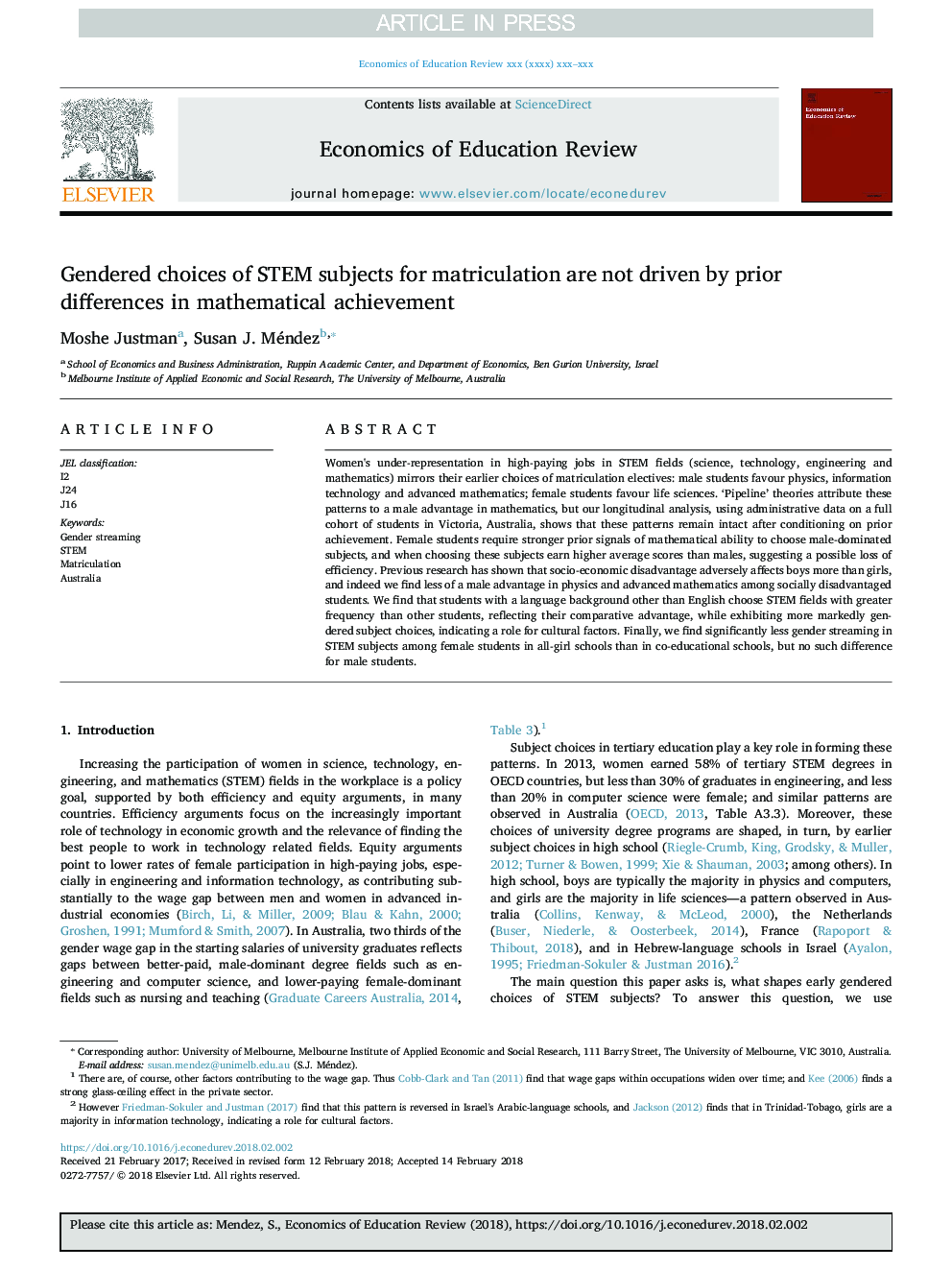| Article ID | Journal | Published Year | Pages | File Type |
|---|---|---|---|---|
| 6840786 | Economics of Education Review | 2018 | 16 Pages |
Abstract
Women's under-representation in high-paying jobs in STEM fields (science, technology, engineering and mathematics) mirrors their earlier choices of matriculation electives: male students favour physics, information technology and advanced mathematics; female students favour life sciences. 'Pipeline' theories attribute these patterns to a male advantage in mathematics, but our longitudinal analysis, using administrative data on a full cohort of students in Victoria, Australia, shows that these patterns remain intact after conditioning on prior achievement. Female students require stronger prior signals of mathematical ability to choose male-dominated subjects, and when choosing these subjects earn higher average scores than males, suggesting a possible loss of efficiency. Previous research has shown that socio-economic disadvantage adversely affects boys more than girls, and indeed we find less of a male advantage in physics and advanced mathematics among socially disadvantaged students. We find that students with a language background other than English choose STEM fields with greater frequency than other students, reflecting their comparative advantage, while exhibiting more markedly gendered subject choices, indicating a role for cultural factors. Finally, we find significantly less gender streaming in STEM subjects among female students in all-girl schools than in co-educational schools, but no such difference for male students.
Related Topics
Social Sciences and Humanities
Economics, Econometrics and Finance
Economics and Econometrics
Authors
Moshe Justman, Susan J. Méndez,
